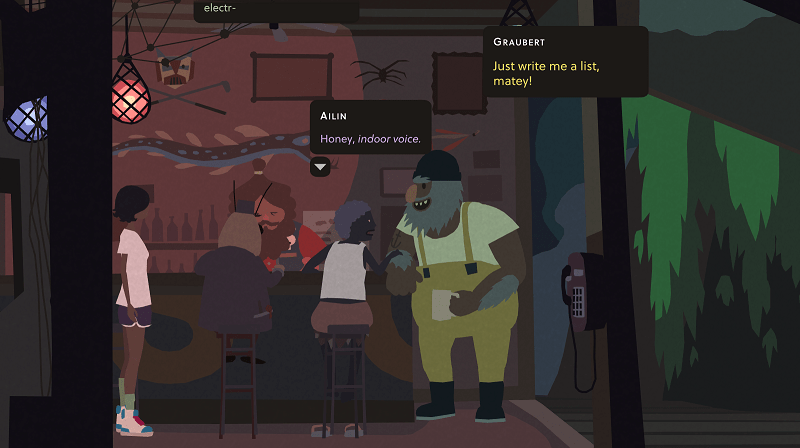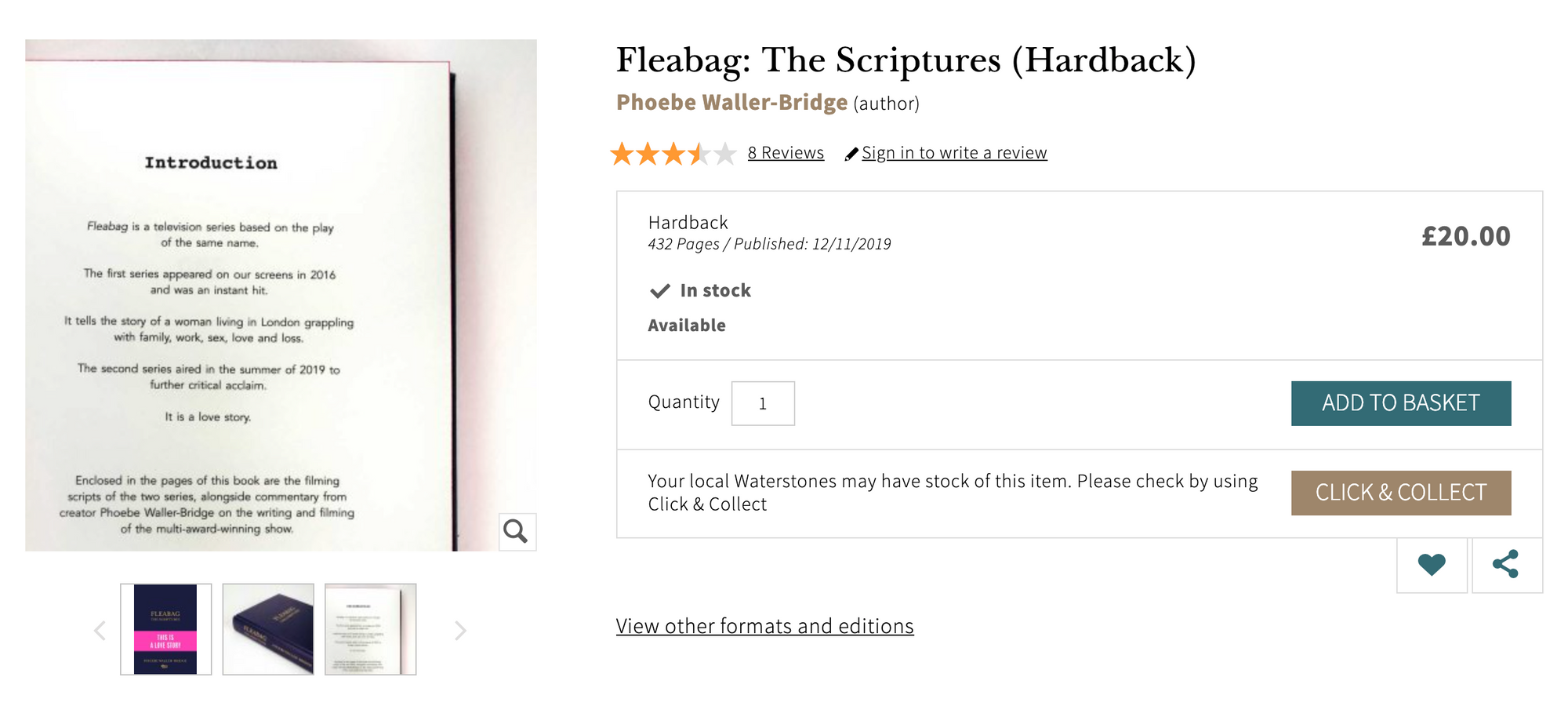
#Craft: Writing Better Dialogue: A 2 Day Workshop
This is the fifth post in Hannah Nicklin's #Craft series. In this series of posts Storyteller and Studio Lead Hannah Nicklin will be touching on elements of the craft of storytelling in games. This might be vocabulary, useful exercises, opinion pieces, or in this case, a two day workshop for improving your listening and writing skills around dialogue.
Writing begins with listening
This is a 2 day workshop that I've recently run as part of unifying the voice of a group of writers, but is also an excellent entry-level practical set of exercises for developing naturalistic, character-driven dialogue for contexts such as video games, TV and theatre.
There will be additional stylistic and formal needs of those media (is it a Tolkien-esque fantasy setting; or a noir detective show; or made for performers who can work with bodies as well as voice; made for animation - where the animation needs space to be expressive; what line length works comfortably on screen; are you writing for 'sounds like speaking' or are you writing for 'sounds like you're reading a book' etc.).
But no matter who you are and what you're writing for, if you want your characters to sound roughly like 'real people', then this is a good foundational workshop. It's best done with at least 2 people, because like any good creative process it's made immeasurably better through discussion and crit.
Summary
Aims:
- To develop a common vocabulary for dialogue.
- To develop a sense of what it means to construct naturalistic dialogue.
- To practice and reflect in a supportive peer environment.
Resources
What you will need.
Worksheets:
Find the character and voice sample sheets here. Feel free to add sections!
Link to shared drive folder with resources.

Listening:
Normally, if this were non-pandemic times, the first half of this workshop would be to send you out to cafes for a day just to listen. To go to places and record snippets and listen. To make sure you capture people with different ages, backgrounds, ethnicities, power differentials (i.e. friend to friend, adult to child, colleagues), gender IDs, etc., as possible, and to listen. In a world without that possibility the next best thing is to try and find youtube, tiktok, etc. footage of people talking 'naturally' - not podcasts really (people are still performing).
If you're struggling for sources, I can recommend the Listening Project, which is a British Library and BBC UK-wide project of one-to-one conversations between people who know each other (not totally natural, but close). What's especially good about this is the regional variation.

Reading:
Playwriting from Stephen Jeffreys - 'Dialogue' chapter:
Stephen Jeffreys - Playwriting - Dialogue chapter.pdf
Buy the full book here: https://www.nickhernbooks.co.uk/playwriting
Day 1: Listening
Start off by meeting for 30-45 minutes with your peers and reflecting on how you currently feel about your dialogue skills - where you want to develop, the challenges you feel you face, influences and the context for your learning. This will help you support one another in a more targeted way as you crit throughout the day, and help everyone realise where they're starting from.
Exercise 1: Group work half of the day
30-45 mins: Listen
Listen to excerpts of 4-5 of the Listening Project conversations. OR find a conversation online which is 'natural' and not too performative (tic toc, youtube, etc. all good resources), and not actors performing or improvising.
30-45 mins: Transcribe
Then choose a short excerpt from 1-2 of them to transcribe.
1 hour: Describe
Once you have written it word-for-word, choose one of the speakers, and build a character & voice sheet for them. The aim is to build on what you have learned from the listening. This might include:
- Name
- Age
- Appearance
- Mannerisms
- Voice
- Vocal tics, habits
- Imagery
- Idioms
- Rhythms
- Pauses
- Interruptions
- Motivations in life
- History/education
- Character traits
- More!
- Moments of poetry
This is as if you were creating a character for a work of game, TV, theatre etc. (whatever your context is), based on the person you have listened to.
1 hour: Reflect:
When you have at least one character/voice sheet each, come back together to talk about the exercises, share your character sheets, what you pulled out, what you noted, and why you made those decisions.
Self-Guided half of the day.
- Read (1 hour): The 'Dialogue' chapter from Stephen Jeffrey's Playwriting linked in Resources
- Find (2 hours) an example of a scene you really like from a piece of popular television with a strongly presence voice/format. E.g. Bridgerton, Avatar the Last Airbender, Star Trek Deep Space Nine. Transcribe the dialogue, including stage directions and write some notes on how the dialogue is effective at communicating/using:
- Character
- Power dynamics
- Interruptions
- How does it feel natural
- How is it actually stylised
- Anything else you've learned from the Reading
3. Write (1 hour): Take two characters drawn from the recordings - the sheets made by everyone (i.e. you can choose other people's characters), and write a 1-2 page scenario between them, where character 1 tries to convince character 2 to do something they are unsure about. This is not about the story/plot/setting, choose a silly thing like 'get them to lend them a book', or 'get them to allow them to borrow a dress', make it set in 'our' world, the crucial thing here is to focus of the construction of the character through voice.
Aim to produce naturalistic dialogue where if you cover the character names you can still tell who is talking. Aim for people who talk in natural rhythms, with natural hesitations and constructions, but with enough style to be readable. Aim to use stage directions to hint at body language where people would naturally do that rather than speak their subtext. The first two reading and transcription exercises should have provided you with a good foundation for this task.

Day 2: Writing - part 1
Today you're going to reflect on the work you did in the second half of the previous day, and you're also going to do writing from the world and characters of one of your own works, or if you're not working on something currently, using existing characters. You will use everything learned the day before to inform your dialogue style, structure, etc.
If in day 1 you found one issue you had was to over-write lines (most people do not talk in paragraphs) today (if you write in google docs or word or a script editor) I want you to switch to A5 page format. If you write in a text editor, resize the margins or the window. Reduce your page width, and use this to be mindful of line-length.
2 hours: Share and reflect 1:
Come together and share and reflect on our work from the previous day.
Start off by discussing the reading - what did it help you articulate? Was there anything you took away which was valuable? Did you disagree anywhere?
Follow by sharing the transcriptions - what did you learn from these? How did they differ from the 'natural' speech of the listening exercise? How have they stylised characters, patterns of speech, and made their dialogue demonstrate the relationship between characters, and exposition of the plot?
Then do a group crit on the writing exercise, perform the scripts together - you will already immediately get a sense of what feels 'natural' and what feels stilted just from reading out loud. Discuss what feels effective, and what might need more work, discuss character mannerisms, voices, line length, rhythm, identity, think together about what a redraft could focus on.
Then we'll do a final writing exercise. To prepare for this read the following and help one another to prepare a scenario. You will all write for the same scenario.
1 hour - Prepare: Collaboratively.
Take the world of one of the shows which you transcribed the exchange from, and choose two characters from the show. Together, collaboratively create a character and voice sheet for the characters, and decide between you on a scenario where one of them wants to get something from the other. Make any rough planning notes you might need to write the scene. Refer to the previous day's work if you wish.
1 hour - Write: Individually.
Individually: Write a 1-3 page scene based on the scenario, including stage directions.
Strive for a dialogue style which is strong in characterisation, and fairly natural in terms of brevity, and sentence structure, but reads much more neatly than dialogue-for-speaking.
(if you're writing for games, then you might like to finish the scenario with an interesting choice, of 1-5 words, that a player could make.)
1 hours - Share & Reflect 2:
As a group read and reflect on the scripts you have written. As you will have worked on the same characters and scenario it will be interesting to see how someone else has approached the task, and hopefully you will be able to draw out the places where you have all made good choices.
2 hours - Redraft, Edit
Some choices for this final work time, choose on the basis of what you feel will be most interesting/useful
- Spend at least a short time redrafting one or both of your written pieces.
- Spend some time editing someone else's script
- Repeat any of the exercises using what you have learned
1 hours - present and reflect:
You present your work, you reflect and discuss:
- What did you find easy?
- What was difficult?
- What did you like?
- What did you learn?
- How might you develop either of the pieces/voices/characters?
Before you finish, make notes somewhere you can come back to when you pick up writing work in the future - a notebook where each week you note down what you learned that week - a text doc you add to with things you learn - or some post its you can stick on your wall.
I hope you found this useful! Tweet me @hannahnicklin if you follow the workshop, I'd love to hear if it worked for you <3
